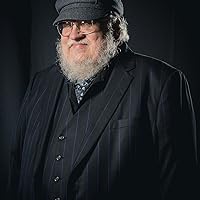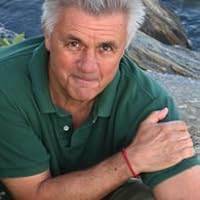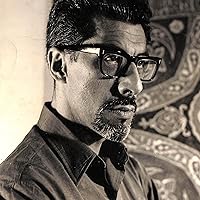Childhood Quotes
Quotes tagged as "childhood"
Showing 2,341-2,370 of 2,389

“When I was a boy and I would see scary things in the news, my mother would say to me, "Look for the helpers. You will always find people who are helping." To this day, especially in times of "disaster," I remember my mother's words and I am always comforted by realizing that there are still so many helpers – so many caring people in this world.”
―
―
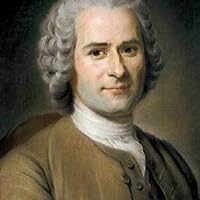
“Hold childhood in reverence, and do not be in any hurry to judge it for good or ill. Leave exceptional cases to show themselves, let their qualities be tested and confirmed, before special methods are adopted. Give nature time to work before you take over her business, lest you interfere with her dealings. You assert that you know the value of time and are afraid to waste it. You fail to perceive that it is a greater waste of time to use it ill than to do nothing, and that a child ill taught is further from virtue than a child who has learnt nothing at all. You are afraid to see him spending his early years doing nothing. What! is it nothing to be happy, nothing to run and jump all day? He will never be so busy again all his life long. Plato, in his Republic, which is considered so stern, teaches the children only through festivals, games, songs, and amusements. It seems as if he had accomplished his purpose when he had taught them to be happy; and Seneca, speaking of the Roman lads in olden days, says, "They were always on their feet, they were never taught anything which kept them sitting." Were they any the worse for it in manhood? Do not be afraid, therefore, of this so-called idleness. What would you think of a man who refused to sleep lest he should waste part of his life? You would say, "He is mad; he is not enjoying his life, he is robbing himself of part of it; to avoid sleep he is hastening his death." Remember that these two cases are alike, and that childhood is the sleep of reason.
The apparent ease with which children learn is their ruin. You fail to see that this very facility proves that they are not learning. Their shining, polished brain reflects, as in a mirror, the things you show them, but nothing sinks in. The child remembers the words and the ideas are reflected back; his hearers understand them, but to him they are meaningless.
Although memory and reason are wholly different faculties, the one does not really develop apart from the other. Before the age of reason the child receives images, not ideas; and there is this difference between them: images are merely the pictures of external objects, while ideas are notions about those objects determined by their relations.”
― Emile, or On Education
The apparent ease with which children learn is their ruin. You fail to see that this very facility proves that they are not learning. Their shining, polished brain reflects, as in a mirror, the things you show them, but nothing sinks in. The child remembers the words and the ideas are reflected back; his hearers understand them, but to him they are meaningless.
Although memory and reason are wholly different faculties, the one does not really develop apart from the other. Before the age of reason the child receives images, not ideas; and there is this difference between them: images are merely the pictures of external objects, while ideas are notions about those objects determined by their relations.”
― Emile, or On Education

“The more we become able to become a child again, to keep ourselves childlike, the more we can understand that because we love the world and we are open to understanding, to comprehension, that when we kill the child in us, we are no longer.”
― We Make the Road by Walking: Conversations on Education and Social Change
― We Make the Road by Walking: Conversations on Education and Social Change
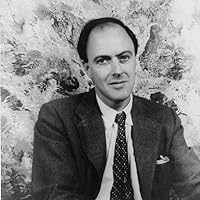
“A stodgy parent is no fun at all. What a child wants and deserves is a parent who is SPARKY”
― Danny the Champion of the World
― Danny the Champion of the World

“And that's when I heard the whisper in my heart's ear: "It's not about your childhood. It's about who you are!”
―
―

“Nearly all children nowadays were horrible. What was worst of all was that by means of such organizations as the Spies they were systematically turned into ungovernable little savages, and yet this produced in them no tendency whatever to rebel against the discipline of the Party. On the contrary, they adored the Party and everything connected with it… All their ferocity was turned outwards, against the enemies of the State, against foreigners, traitors, saboteurs, thought-criminals. It was almost normal for people over thirty to be frightened of their own children.”
― 1984
― 1984
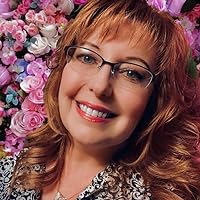
“Have you noticed how children never bypass a puddle of water, but jump, splash, and slosh right through it? That's because they know an important truth: Life was meant to be lived; puddles were meant to be experienced.”
― Smile Anyway: Quotes, Verse, and Grumblings for Every Day of the Year
― Smile Anyway: Quotes, Verse, and Grumblings for Every Day of the Year

“Just as she was unaware of the hidden currents of politics running below the surface of College affairs, so the Scholars, for their part, would have been unable to see the rich seething stew of alliances and enmities and feuds and treaties which was a child’s life in Oxford. Children playing together: how pleasant to see! What could be more innocent and charming?”
― The Golden Compass
― The Golden Compass

“I tried to show him things, but he didn't seem to study what I showed him. Usually, he just put whatever I handed him in his mouth. He would try to eat anything. I fed him Tabasco sauce and he yelled. Having a little brother helped me learn to relate to other people. Being a little brother, Snort learned to watch what he put in his mouth.”
― Look Me in the Eye
― Look Me in the Eye
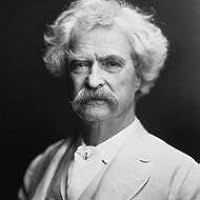
“Looking' his last' upon the scene of his former joys and his later sufferings, and wishing 'she' could see him now, abroad on the wild sea, facing peril and death with a dauntless heart, going to his doom with a grim smile on his lips.”
― The Adventures of Tom Sawyer
― The Adventures of Tom Sawyer

“When I hear a man say that his childhood was the happiest time of his life, I think (puff) my friend, you have had a pretty poor life.”
―
―

“It reminded me of how children always thought too big; how the world tackled and chiseled them to keep them safe.”
― Who Will Run the Frog Hospital?
― Who Will Run the Frog Hospital?

“Boy and Egg
Every few minutes, he wants
to march the trail of flattened rye grass
back to the house of muttering
hens. He too could make
a bed in hay. Yesterday the egg so fresh
it felt hot in his hand and he pressed it
to his ear while the other children
laughed and ran with a ball, leaving him,
so little yet, too forgetful in games,
ready to cry if the ball brushed him,
riveted to the secret of birds
caught up inside his fist,
not ready to give it over
to the refrigerator
or the rest of the day.”
― Fuel: Poems
Every few minutes, he wants
to march the trail of flattened rye grass
back to the house of muttering
hens. He too could make
a bed in hay. Yesterday the egg so fresh
it felt hot in his hand and he pressed it
to his ear while the other children
laughed and ran with a ball, leaving him,
so little yet, too forgetful in games,
ready to cry if the ball brushed him,
riveted to the secret of birds
caught up inside his fist,
not ready to give it over
to the refrigerator
or the rest of the day.”
― Fuel: Poems
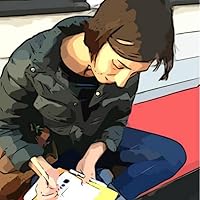
“In the tell-me-again times, (…) when my mom and I lived in a little apartment in a little building downtown, I slept in her bed. It was a raft on the ocean, a cloud, a forest, a spaceship, a cocoon that we shared. I could stretch out like a five-pointed star and then she'd bundle me back up in her arms. I'd wake in the morning tangled in her hair.”
― Uses for Boys
― Uses for Boys

“Tous les enfants essaient de compenser la séparation du sevrage par des conduites de séduction et de parade; on oblige le garçon à dépasser ce stade, on le délivre de son narcissisme en le fixant sur son pénis; tandis que la fillette est confirmée dans cette tendance à se faire objet qui est commune à tous les enfants.”
― Le deuxième sexe, I
― Le deuxième sexe, I

“Ghosts are not what I remember of my childhood; but somehow they
infuse memories of myself as a child, the little girl in a storybook, with
ghosts hovering around her.”
― Porridge and Cucu: My Childhood
infuse memories of myself as a child, the little girl in a storybook, with
ghosts hovering around her.”
― Porridge and Cucu: My Childhood

“...it saddens me that she has to grow up and make friends with humans. I hear the future coming for her. Stomp, stomp, stomp.”
― All Good Children
― All Good Children
“From New Year's Eve through the third of January, the streets of Tokyo grew quiet, as if all the people had disappeared.”
― J-Boys: Kazuo's World, Tokyo, 1965
― J-Boys: Kazuo's World, Tokyo, 1965

“If we truly detach from our childhood and abandon our inherent romanticism, then we shred any bit of humanity left in us.”
― The Black Banner
― The Black Banner

“En tant qu'il existe pour soi l'enfant ne saurait se saisir comme sexuellement différencié. (...) C'est à travers les yeux, les mains, non par les paties sexuelles qu'ils appréhendent l'univers.”
― Le deuxième sexe, I
― Le deuxième sexe, I

“You're a kid,' said Alexandra. 'There is no just about it. Only adults say just a kid and what the heck do they know about anything? Have you looked at their world lately?”
― Darwen Arkwright and the Peregrine Pact
― Darwen Arkwright and the Peregrine Pact

“Si, bien avant la puberté, et parfois même dès sa toute petite enfance, elle nous apparaît déjà comme sexuellement specifiée, ce n'est pas que de mystérieux instincts immédiatement la vouent à la passivité, à la coquetterie, à la maternité, c'est que lintervention d'autrui dans la vie de l'enfant et presque originelle et que dès ses premières années sa vocation lui est impérieusement insufflée.”
― Le deuxième sexe, I
― Le deuxième sexe, I

“I looked out the window and saw the street and railroad tracks, the woods beyond. Beyond the woods, the county of which they were a part. And so on, until it all dissolved into the larger thing: my mother's house becoming every other house as I once had seen it, sitting atop the southern end of a broad river valley, close enough to the the mountains that every few years a scared black bear would wander down into the remaining forest, and close enough to the ocean that those early English settlers took it as the farthest point they'd go upstream, the geology of the place preventing them from having any choice other than the one wherein they said, "We are lost; therefore we will call this home." And close enough that as a child I had been teased by older kids who said if I only tried hard enough I would smell salt water, and I, believing, stood among the light poles and the gulls in the parking lots of A&Ps and cried when I knew that it was true despite the fact that they had meant to lie, as children sometimes do.”
― The Yellow Birds
― The Yellow Birds

“Hann var bara að komast á þann aldur, þegar barnið sofnar djúpt inní manni og hjá sumum vaknar það aldrei aftur. Ekki í þessu lífi. Svoleiðis fólk gengur því með dáið barn inní sér. Og misskilur þessvegna allt heila klabbið.”
― Skurðir í rigningu
― Skurðir í rigningu

“That night, Gregory dreamt of his mother. It was a dream that he'd have carried to his therapist like a raw, precious egg if he'd had a therapist, and the dream made him wish he had one. In the dream, he sat in the kitchen of his mother's house at the table on his usual place. He could hear her handle pots and pans and sigh occasionally. Sitting there filled his heart with sadness and also with a long missed feeling of comfort until he realised that the chair and the table were much too small for him: it was a child's chair and he could barely fit his long legs under the table. He was worried that his mother might scold him for being so large and for not wearing pants. Gregory, in the dream, felt his manhood press against his belly while he was crouching uncomfortably, not daring to move.”
― Exquisite Quartet Anthology 2011
― Exquisite Quartet Anthology 2011
All Quotes
|
My Quotes
|
Add A Quote
Browse By Tag
- Love Quotes 97k
- Life Quotes 75.5k
- Inspirational Quotes 72.5k
- Humor Quotes 43.5k
- Philosophy Quotes 29.5k
- Inspirational Quotes Quotes 27k
- God Quotes 26k
- Truth Quotes 23.5k
- Wisdom Quotes 23.5k
- Romance Quotes 23k
- Poetry Quotes 22k
- Death Quotes 20k
- Happiness Quotes 18.5k
- Life Lessons Quotes 18.5k
- Hope Quotes 18k
- Faith Quotes 18k
- Quotes Quotes 16.5k
- Inspiration Quotes 16.5k
- Spirituality Quotes 15k
- Religion Quotes 15k
- Motivational Quotes 15k
- Writing Quotes 14.5k
- Relationships Quotes 14.5k
- Life Quotes Quotes 14k
- Love Quotes Quotes 13.5k
- Success Quotes 13.5k
- Time Quotes 12.5k
- Motivation Quotes 12k
- Science Quotes 11.5k
- Knowledge Quotes 11k

